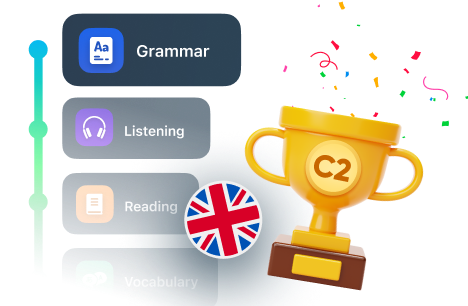
How We Learn English And Do We Really Learn It?

Get a FREE guide!
Want to sound like a native English speaker?
Get our free PDF with top tips that work.

Check your email!
What are the methods?
English is the most popular language taught in the world, and you can guess that there are many methods of teaching it and tons of books for teachers. Some methods (the most traditional ones) put grammar first, others put reading and listening first, some throw out all the textbooks and simulate conversational situations for students right in the classroom, while others put an emphasis on vocabulary.
Can you really learn a language?
At the same time, methodologists say that you cannot learn a language per se. You cannot teach a language; a foreign language is learnt, adopted just like a native one. Therefore it is important to hear words/phrases over and over again, to see how they are written, to reproduce the sound, and to be sure to use them in speech.
Lexical approach
The lexical approach using authentic materials (videos and texts where we meet real people with live speech rather than textbook adaptations) is closest to me. It is engaging and accessible, it allows you to immerse yourself in a real language, and it demonstrates that language has no levels. For example, in a children’s cartoon, you can hear the phrase “I should’ve done it!” (a phrase that not every intermediate English student knows well), so I take the Beginner-Advanced level measurement with a pinch of salt (does your level of English matter, or does it matter if you understand someone or not, if you can express a thought, or not?) And perhaps most importantly, this approach involves active vocabulary acquisition not in the form of word lists but in the form of phrases and whole constructions directly in context.
Use it or lose it
In general, the more you watch, listen, and read something in English (or any other language you learn), the better. Language without practice recedes at an extreme speed. Obviously, you don’t always have the time or desire to study hard, learn something, do exercises, and so on. In this case, to maintain your level and not fall out of language practice for a long time, it is useful to get at least “microdoses” of the language. Social networks are great for that: it is enough to subscribe to several English-speaking profiles, and you will get these daily “microdoses” in your feed. The idea is to get short videos, quotes, photos with captions, etc., in front of your eyes as often as possible. By the way, I especially recommend profiles with jokes, which are full of puns that make you pay attention to the unusual ways that words can sound.
Finally, comments on social media posts are a treasure trove. There are memes, modern slang, and, most importantly, the ability to write those comments! Writing comments is a great way to turn from a language learner into a language user who is a participant in a live conversation.


















